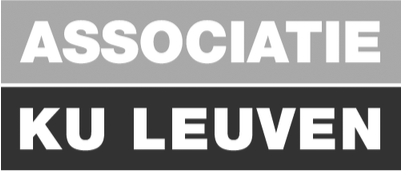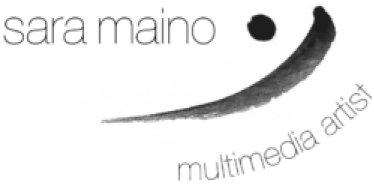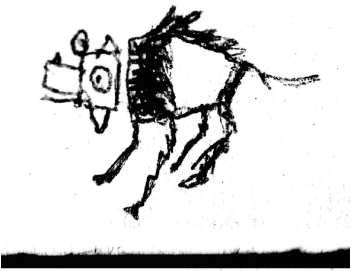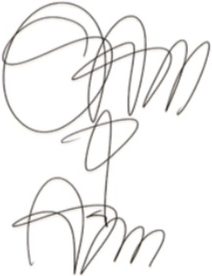How to Film Poetry
When two years ago I started doing my art-based research at Sint Lukas University Brussels on “How to visualize poetry” I did not expect to end up directing my own film. Due to my technical inexperience in film-making, the initial intention of the project was to visualize a poetic novel “Tishe…Piano” in close co-operation with a digital animator. In this case, the problem of finding the right cameramen, technicians and editors would be resolved. This is fair enough, however life as usual, has put everything in its own order: the animator cancelled the agreement just after we had started the first episode.
To cut a long story short, one of my curators – Malcolm Le Grice, a British filmmaker known for his avant-garde film work, challenged me to take the camera and film the poetic piece myself. The challenge was due to Malcolm’s conviction that video in comparison to animation as a mean of poetic expression is more advantageous in the sense of its ambiguity. As for theoretical reference, I decided to focus on a number of Russian film directors exploring the theme of ‘poetry in cinema’, but after a thorough investigation I chose only one name – Andrei Tarkovsky as he is a visualizer of his father Arsenii’s poetry.
Since the filming of poetry as the convergence of two languages (the language of poetry and the language of cinema) prompts many questions, in this article we will try to understand how Andrey Tarkovsky has translated his father’s poem “First Meetings” into his film “Mirror” and what is the correlation between the text and the image.
The poem is dedicated to Maria Faltz, the woman “in unfashionable blue silks”, who died in 1932, long before the poem was written. Despite the apparent simplicity, “First Meetings” is full of symbolism and is difficult to comprehend. This article won’t be devoted to understanding the poem’s esoteric sense, but will focus our attention on its theme in general and how it was filmed by Andrey Tarkovsky.
“First Meetings” is not just a love poem. It reveals the unity of earthly life and its divine essence. The poet shares with us the feeling that he has experienced in his youth, the love that was a sign of the presence of divine power, love that is God:
Every moment that we were together
Was a celebration, like Epiphany…
The film “Mirror” itself, is regarded as a personal journey into Andrei Tarkovky’s past and has an overall feeling of observing a person’s most regrettable memories. “First meetings” is very lyrical, it sounds like a sonnet, one of the most ideal poetic forms. It is full of beautiful tropes. One of them is the image of “the other side of a mirror glass”. This image in the poem is not equal to the image of a mirror in the film. The mirror glass of Arsenii Tarkovsky is something unreal, unexsisting, but at the same time present; it is not possible to avoid, it exists because the image in a mirror is always reflected in reality. “Beyond the mirror” is always just a copy of the real object, it is immaterial, it is a precise image of poetry itself, which is immaterial, but the existence of which is doubtless.
For Andrey Tarkovsky the mirror is not a reflection, but a refraction: it refracts light through the prism of memory.
The poem in the film functions as a voice of the director who is commenting the events. The visual sequence that accompanies the poem does not illustrate the text. Tarkovsky juxtaposes his visual symbolism with the verbal imagery of the poem by using his own montage technique that links disparate images in a way that produces a dreamlike inner coherence; he uses the technique based on poetic reasoning, which is opposite to the “intellectual montage” of Eisenstein.
While the poem is being read by Arsenii Tarkovsky, we observe a woman-protagonist walking towards her house, leading us to “her domain” :
Heady as vertigo you ran downstairs
Two steps at a time, and led me
Through damp lilac, into your domain
On the other side, beyond the mirror.
The woman is at the same time a subject and an object of the film: a subject of the poem that is addressed to her and an object of the camera that haunts her without pauses. This double-framing introduces the concept of the mirror image of selfhood, the notion of self-analysis.
Time-slowering is a function of recollection (Fiesta MP, Eagleman DM (2007)) and that is why Tarkovsky visualizes the remembering through an unhurried walk from the garden towards home, a slow moving camera-eye follows the woman step by step from the garden (outside) to the house (inside), from outer world to inner world of memories.
The next shot is inside the house: we see her two kids eating. The woman observes them, then slowly continues her way towards the window. There, sitting near the window, she watches the life outside: the trees, the grass, the sky, the rain:
Ordinary objects were at once transfigured
Everything—the jug, the basin—when
Placed between us like a sentinel
Stood water, laminary and firm.
Her memory accompanied by solid rain transforms the casual naturmort behind the window into something ‘worth living in’, as love in the poem transfigures ordinary objects into a magic.
She cries in unison with the rain, but the faraway sound of barking dogs and the nearby cat’s “myau” brings her back to the reality of “now”. The house in the episode functions as a space between past and now, the space that allows to go back into the memory and at the same time to be present in Now, observing children and everyday routine.
Her solitude is visualized by the disembodied voice, due to the fact that the voice-over is literally disconnected from the visual image. The director does not use sound synchronization, one of the main characteristics of narrative cinema. The voice comes from outside the frame, it does not belong to a visible body in the film space.
How does Andrei Tarkovsky manage to film the poem? He was raised on his father’s poetry and that is why in some way the language of Arsenii Tarkovsky’s lyric poetry shaped the cinematic language of Andrei Tarkovsky. The director uses the ‘poetry’s properties’ in his cinema: the subjective point of view of the lyrical “I”, the nonlinear narrative of the poem, the absence of rational reasoning, the development of the action through the associative leaps, the emotions and the confesional nature of the lyrical poetry.
Poetry speaks the unspeakable, either through the language of literature, or through the language of cinema, or through other art forms. In the films of Andrey Tarkovsky the images of everyday life are transformed into something enigmatic not only by cinematic manipulation, which brings the documentary into the realm of the lyrical, but also by putting one’s (director’s) soul into it.
It seems that in order to visualize poetry, one should not only search for specific techniques, but should also listen to one’s inner voice, to observe, unhurriedly and carefully, the reality of Now and then to materialize the memory in a film, a canvas, a poem…
First Meetings
Every moment that we were together
Was a celebration, like Epiphany,
In all the world the two of us alone.
You were bolder, lighter than a bird’s wing,
Heady as vertigo you ran downstairs
Two steps at a time, and led me
Through damp lilac, into your domain
On the other side, beyond the mirror.
When night came I was granted favour,
The gates before the altar opened wide
And in the dark our nakedness was radiant
As slowly it inclined.
And waking I would say, ‘Blessings upon you!’
And knew my benediction was presumptuous:
You slept, the lilac stretched out from the table
To touch your eyelids with a universe of blue,
And you received the touch upon your eyelids
And they were still, and still your hand was warm.
Vibrant rivers lay inside the crystal,
Mountains loomed through mist, seas foamed,
And you held a crystal sphere in your hands,
Seated on a throne as still you slept,
And—God in heaven!—you belonged to me.
You awoke and you transfigured
The words that people’ utter every day,
And speech was filled to overflowing
With ringing power, and the word ‘you’
Discovered its new purport: it meant ‘king.
Ordinary objects were at once transfigured,
Everything—the jug, the basin—when
Placed between us like a sentinel
Stood water, laminary and firm.
We were led, not knowing whither,
Like mirages before us there receded
Cities built by miracle,
Wild mint was laying itself beneath our feet,
Birds travelling by the same route as ourselves,
And in the river fishes swam upstream;
And the sky unrolled itself before our eyes.
~ When fate was following in our tracks
Like a madman with a razor in his hand.”
Arseniy Tarkovsky (Translated by Kitty Hunter-Blair)









